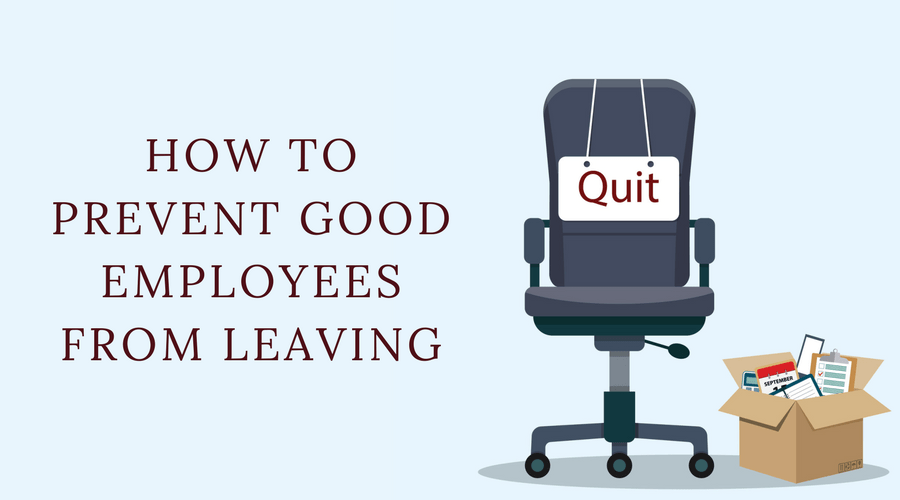7 Reasons Good Employees Quit (and How to Prevent Them from Leaving)

Good workers leave jobs sometimes. And, employee turnover is expensive. Every time someone leaves your company, they take their knowledge and expertise with them. Then, you have to find, hire, and train their replacement. To cut down on the number of team members who quit, understand the seven common problems that cause why people leave jobs.
1. Better wages and benefits elsewhere
A lot of people will be tempted to leave if they find a better wage and benefit package somewhere else. If you notice that you’re losing several workers because they were offered a higher salary, consider offering more benefits and inexpensive perks to entice your team members to stick around. You might also want to consider whether you’re underpaying your staff.
Read also: 10 Affordable Perks Your Employees Want
2. Future career opportunities
Employees may also leave if they don’t think there are many chances for growth and promotion within your company. In fact, 87 percent of millennial workers consider professional development options when making job-related decisions.
You can combat this issue by providing career growth opportunities, including chances to learn new skills.
3. Disengagement and boredom
Per Gallup, only about 30% of workers are engaged at work, and about 24% are actively disengaged. Employers with disengaged employees experience 30% to 50% higher turnover rates than other companies. People may also quit if they’re bored at work. Boredom can be caused by not having enough work available, being assigned tasks that aren’t challenging, or not using their skillset.
You can boost engagement and stave off boredom by assigning your staff work that uses their skills and hiring people who align with your culture.
Read also: 13 Interview Questions to Ensure a Cultural Fit
4. Lack of recognition
Being recognized for a job well done is crucial for employee retention.
Provide frequent and timely recognition to ensure your staff’s hard work is noticed. Be specific with your appreciation, as it provides an example for each team member to repeat and emulate. Let your team know how their work contributes to the overall goal and mission of your company.
5. Lack of trust
If you refuse to share information with your staff unless necessary, you’re telling them that you don’t trust them. If your workforce thinks you don’t trust them, they’re more likely to leave for an employer who does.
You should be able to trust your workers to do the job you hired them for, and they should trust you to operate fairly and ethically and provide the tools they need to do their jobs. Information is one of the tools your employees expect, and they should feel like they have the info they need to make decisions.
To show your team you trust them, focus on transparency. Don’t ask, “Is it necessary to share this piece of information?” Instead, ask, “Is it necessary to keep this information from my workers?”
Read also: Transparency in the Workplace
6. Micromanagement
Nobody likes to be micromanaged, and no leader plans to become a micromanager – it just happens. Learn to recognize it in yourself and your company’s supervisors so that you can fix it.
Focus on collaboration and encourage your employees to claim ownership of their work. This embraces autonomy and inspires a greater sense of purpose.
7. Team conflicts
Every team will have the occasional disagreement, but constant problems will cause your workers to leave. Ongoing friction can lead to higher absenteeism and will eventually cause your staff to quit to avoid the negativity.
To nip conflict in the bud, deal with it immediately and privately.
Read also: How to Have Difficult Conversations with Your Employees


